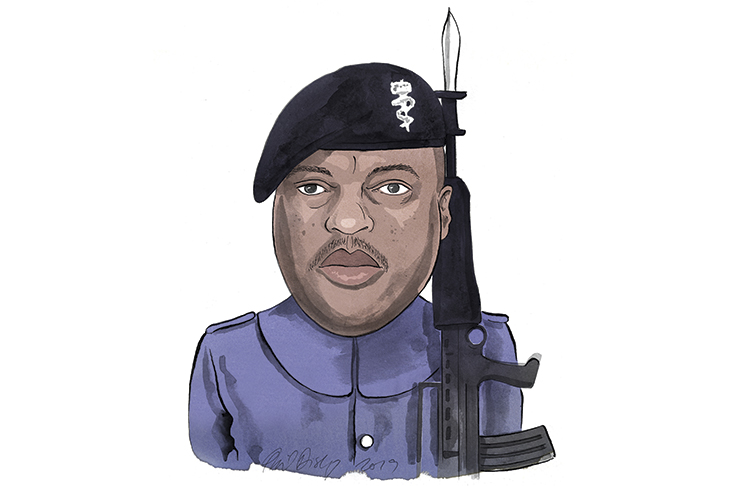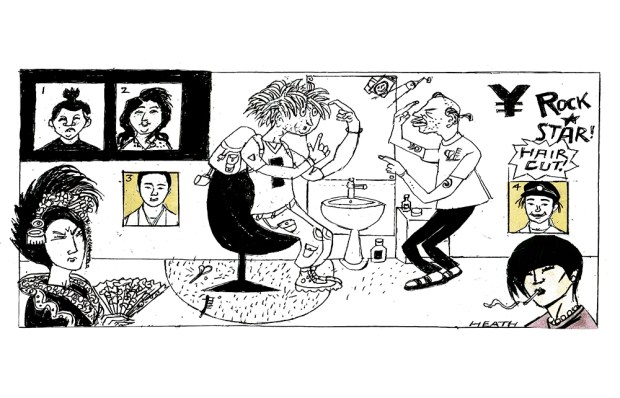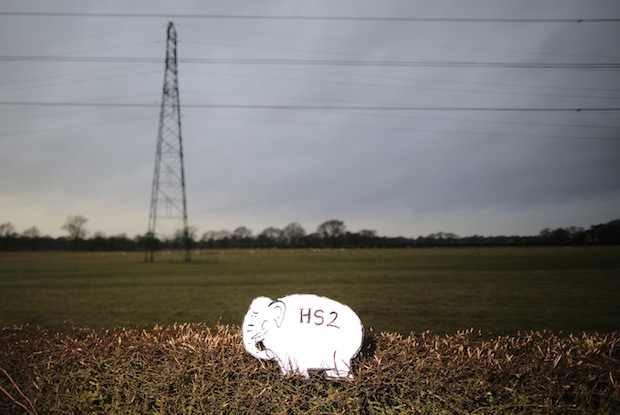When Boris Johnson edited this magazine, it proposed an amnesty for illegal immigrants — a controversial notion, but an idea he has stuck to. As London Mayor he suggested an ‘earned amnesty’: if bureaucracy had failed over many years to catch up with the 400,000 undocumented migrants in the capital, he reasoned, why not regularise their status so that they could start paying taxes and contributing to the country in other ways? When this magazine reprised the issue last week, the usual objections were recycled: why reward criminality? But the actual cases are more complicated.
Trevor Rene is one such case. He was born in Dominica in 1969 when it was still a British colony, so as a child he had a British passport. He has family in Britain because his grandfather moved here in the early 1950s, as one of the Windrush generation. He lost his UK passport when Dominica gained independence in 1978, but went on to respond to an advert for recruits to the British army. The Royal Electrical and Mechanical Engineers didn’t mind about his status. He has photos of his passing-out parade on the walls of his Hertfordshire home, along with the oath of allegiance he swore to the Queen on joining the army. On Remembrance Sunday in 2012 he took part in the Cenotaph ceremony.
‘They were advertising all over the Caribbean,’ he says when we meet in his home in Welwyn Garden City. So he travelled over and signed up. ‘I arrived at Gatwick, told them what I was doing here, and they gave me a six-month stamp in my passport.’ He reported to an army careers office in London. ‘I was 38 and they said I was too old to join the regular army, as they were only taking people up to 35. They told me I had to go to a local army unit.’ He went to Whipps Cross, east London and joined up as a reservist. ‘They asked me for my passport, and saw the six-month visa.’
His Commanding Officer sponsored his application to stay. And as the wheels of bureaucracy ground on, he continued to serve in uniform, his job being to repair Land Rovers. In the meantime he managed to go on holiday to Turkey and re-enter Britain without trouble. In 2011, however, he was asked to send his passport to the Home Office, and hasn’t seen it since. In 2013, returning in a troop truck at Harwich from a Nato exercise in Denmark, he was asked for his passport. ‘I said I didn’t have one because it was with the Home Office.’ They let him through, but the incident must have awoken someone in immigration control.
‘The Home Office contacted my unit and said they had an illegal entrant working for them, but they knew that I came via Gatwick airport. I didn’t come on the back of a lorry, I came the proper way. The army told me that they had to let me go but said I could always come back once I was regulated.’ Not only was he thrown out of the army — which had accepted him six years earlier, knowing his migration status — he was forbidden from seeking any other kind of paid employment.
So he then joined tens of thousands in a twilight zone: people who arrived legally, but whose visas ran out — who loved the country and sought to stay. People whose behaviour and conduct have been faultless, but who are nonetheless pursued by the authorities because they are an easier target than genuine criminals. And people who, while they continue their fight through the courts, are prevented from contributing to the economy by laws that have not adjusted to the fact that there are now 1.2 million in this legal limbo.
Trevor received a letter demanding that he visit a police station in Hatfield once a month to sign in. ‘I thought it was bogus at first. The Home Office said I would run away, but run away from what?’ So every month for two years he duly signed in — until December 2016. ‘I tried to sign in as normal and they detained me, no warning or anything.’ He says he was locked in a police cell for 24 hours and then transferred to the Campsfield detention centre in Oxfordshire, where he was initially locked up with Romanians. ‘I asked why they were there when they came from an EU country. It turned out they were criminals, and there was no room in prison.’ Later, he found himself sharing a cell with a Filipino who gave him the number of a solicitor.
After 17 days he was allowed out, but only after his wife Diane paid his £700 bail. He has been refused a spousal visa, on the grounds that his wife does not earn above a threshold of £18,600, something he says is incorrect. His right to a family life would doubtless stop his deportation, but the system pursues him regardless. ‘I’m not asking for a passport,’ he says. ‘All I want is indefinite leave to remain. Let me continue my life, and start to work and pay my taxes.’ Like so many, he has been shunted into a siding, unable to work — yet unable to leave the country of his own free will as the government has his passport. Given his six years of service in the armed forces and his marriage to a British citizen, you might wonder what more he must do to prove worthy of being allowed to live here.
It should be a sobering thought for the Conservatives that had Boris’s proposal for an amnesty for longstanding illegal migrants been adopted by the Cameron government, the Windrush scandal would never have happened. The Prime Minister should be brave enough to recognise that he was right — and commit his party to an amnesty.
Got something to add? Join the discussion and comment below.
Get 10 issues for just $10
Subscribe to The Spectator Australia today for the next 10 magazine issues, plus full online access, for just $10.
You might disagree with half of it, but you’ll enjoy reading all of it. Try your first month for free, then just $2 a week for the remainder of your first year.















Comments
Don't miss out
Join the conversation with other Spectator Australia readers. Subscribe to leave a comment.
SUBSCRIBEAlready a subscriber? Log in